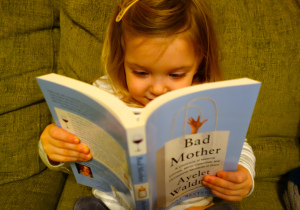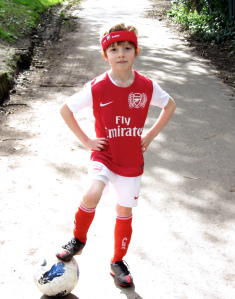I am a milestone junkie. A tooth cut, a word spoken, a button done, a dry night had: this is the stuff of motherhood to me. Even when my fourth child took his first wobbly steps a few months ago, it bowled me over. I cheered him on, I made the video, I broadcast the news to the relevant family members. Of course I had seen it before, but it didn’t cease to thrill.
A baby’s development over the first two to three years of life is an objectively impressive transformation. What starts as a wholly stationary, wholly nonverbal, and wholly helpless bundle of reflexes slowly but surely evolves into a full-fledged little person: a little person with the ability to move and to manipulate things, to harbor desires and ideas separate from our own that can be expressed with ever-increasing sophistication.
When that baby is your baby, the process is even more amazing. Not only because you are there to witness it first hand, but because the countless, selfless hours of love and attention that you have poured into that baby are in large part responsible for the fact that it has happened at all. It is hard not to see one’s offspring as an extension of oneself in this respect.
And yet, every healthy baby will ultimately make this transition. They will all master the pincer grip and scale the sofa and sing ‘Twinkle Twinkle Little Star’ in the cutest voice ever. They will all write their names in oversized, wonderfully irregular letters. These firsts feel unique and astronomical when they are happening, and they are, they really, really are! But at the same time, in the larger context of children everywhere, there is a sense in which they are utterly routine.
Milestones are, in this way, both magical and mundane. It is a paradox, true enough, and maybe even an obvious one at that, but I think it explains much of how we react to our children’s early ‘achievements’. It is why, for example, we can’t respond with the same emotional heights when we hear about somebody else’s kid taking his first steps or saying his first words. It is why most of us instinctively know to save this kind of information for the select group of friends and relatives who are close enough to our own kids to actually care.
Most interestingly, the paradoxical nature of milestones could explain why we invest so much meaning these days in the rate at which they occur. Every healthy newborn will make the transition from blobby baby to walking, talking toddler. But they won’t all do it to the same schedule. The variance in when developmental milestones are hit by different children has started to matter to parents…a lot. Our generation’s preoccupation with the ‘advanced’ child can be written off as competitiveness - and sometimes, no doubt, that’s exactly what it is. But perhaps there is also a more tender psychological motivation at work.
In this climate of parenting where everyone knows the points of the Denver Developmental Screening Test intimately and where comparisons between children run legion (even if only in our minds), perhaps the emphasis on doing things early is simply a protective instinct. A way to keep these creatures who are the epitome of specialness to us special in the eyes of the rest of the world.
One of the most exciting, and frightening, things about having a baby is the tabula rasa effect. It is exciting because the opportunity to shape these blank slates who have come, so suddenly it seems, into our care feels boundless. It is frightening for exactly the same reason. Milestones offer a measure of the job we are doing in this respect or, at any rate, periodic proof that we are somehow doing it ‘right’. And let’s be honest: we all need this kind of reinforcement from time to time as we navigate the murky waters of parenthood.
Milestones are markers but they are also windows. What I love about discovering when different babies will do different things is the glimpse it gives us into their identity. Each new ability takes us one step closer to answering the question we are all desperate to know from the moment they are born: just who are you?
In this way, the order and speed at which small children reach milestones might very well be telling. Early talkers might be highly literate; early walkers, particularly athletic. The ‘smart’ baby who counts to ten at 18 months might be top of her class. This is part of the fun. Speculating about our kids is a natural element of parenting them. So is wanting them to succeed. And so is, to some degree, labelling them. But this is where we have to take care, both in terms of our own expectations and how we talk to our fellow mothers and fathers.
There was a spoof making the rounds recently about how 100% of grandparents think their grandchildren are gifted. Bias can be an adorable thing, particularly when it is acknowledged as such. Claims of grandeur in the face of typical development, on the other hand, are far less cute: not only because they are often misguided, but because they tend to make other parents feel bad or worried and unnecessarily so. Context is everything here. Most of us don’t have the appropriate data set to know what exactly the range of normality is one way or the other when it comes to, for example, how many words a two year can string together. But we should know enough to realize that amongst our audience for this feat - whatever the number is - might be the mom of a two year old who struggles to utter even a single word. Not to mention the mom of a two year old who is already starting to read.
We can’t control the culture in which we parent. Peruse any milestone forum on any parenting website and it is clear that the push right now for advanced - one could say premature - learning amongst even the littlest children is palpable. What we can control, however, is our awareness that the pride and awe we feel, the pride and awe we should feel, as we watch our child progress through his early years stands side by side with the fact that someone else’s child is making that very same march. Maybe a little bit faster, maybe a little bit slower.
Like this:
Like Loading...



